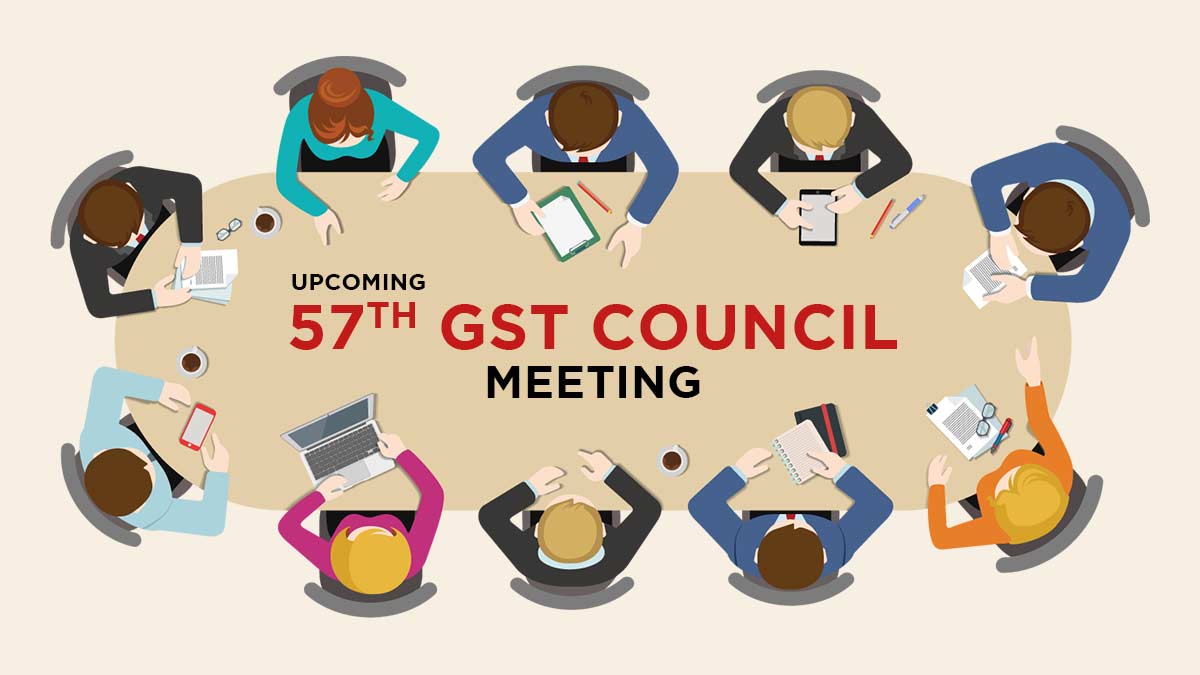
The GST council, in its forthcoming 57th GST meeting, may focus on additional revisions to facilitate the procedure and policies.
In the next meeting of the GST council, the process of registration, refund, and audit can be facilitated, a Finance Ministry official stated. The latest provisions for direct taxes in the Finance Bill are directed to honour the trust.
“Our officers have held two rounds of extensive meetings. Basic agenda has been prepared. Once we get more concrete suggestions, we will finalise the agenda for the GST Council,” he stated, adding that the next meeting can take place once the Budget is passed. The same signifies either the last week of March or early April.
In the last GST meeting, conducted on September 3, a revamp of the rate structure was recommended. When asked about key issues expected to arise in the upcoming meeting, the official mentioned that topics may include registration, refunds, and audits, among others.
Tax experts point out that the unnecessary distinction between goods and services for refund purposes has resulted in significant working capital constraints for various industries. They suggest that the GST Council must consider permitting refunds for accumulated Input Tax Credit (ITC) on input services. This change would help ensure a seamless flow of credit and improve liquidity for businesses.
The rate exercise has been completed. The upcoming meeting may deliberate on facilitating compliance through changes in rules, processes, and policies. Regarding specific policy areas, officials stated that data is being collected, and based on that, the agenda will be prepared.
Experts Urge Expansion of Energy Access and E-Invoicing
The urgent areas that require attention are, first, the most crucial reform is bringing electricity and natural gas within the GST ambit. Their existing exclusion breaks the Input Tax Credit (ITC) chain, leading to a cascading effect that increases the cost of energy for industries.
Manufacturers claim ITC if all gets included in GST, which reduces their cost of production and promotes clean, cheap energy across domestic and industrial sectors. It is crucial for a true One Nation, One Tax regime.
The next step in compliance is to expand the e-invoicing model to include Business-to-Consumer (B2C) transactions for large businesses. The third is establishing a GST Arbitration Tribunal that delivers an alternative and faster method for resolving tax disputes, particularly those involving complex factual issues.
GST 2.0 rate rationalisation has extended the situation of Inverted Duty Structure (IDS), where there is a lower tax on outputs compared to inputs. Even after the same restriction on the ITC refund based on input services remained unaddressed.
Key Concerns Regarding ITC Refund and Inverted Duty Structure
The artificial distinction between goods and services for the purpose of refund has led to significant working capital blockages for various industries. The GST Council can permit refund of such accumulated ITC on input services, thereby ensuring seamless flow of credit and improved liquidity for businesses.
The GST council would be required to consider rolling out a one-time relief procedure, either allowing the usage of credit based on compensation cess against IGST/CGST/SGST liabilities or enabling proportionate refund, to prevent permanent capital erosion. The third is that the council can regard explaining or revisiting the deemed valuation procedure for renewable energy devices to align the same with the actual transaction values, which assures cheaper renewable energy.
Under the GST amnesty scheme is required for the first 2-3 years of GST, concerning procedural or technical non-compliances (as opposed to serious allegations like fake invoicing). Meanwhile, robust reforms are required at the adjudication and first appeal levels to ensure that taxpayers get a sense of fair hearing at such levels, as opposed to the present perception of a deep pro-revenue bias.
Effective and expeditious dispute resolution is a parameter of seamless business operations, and reforms concerning this shall enhance the ease of business quotient, qua GST. A separate and independent adjudication wing within the CBIC, with members specially trained for fair adjudication, can be a reform worth considering.
Source: